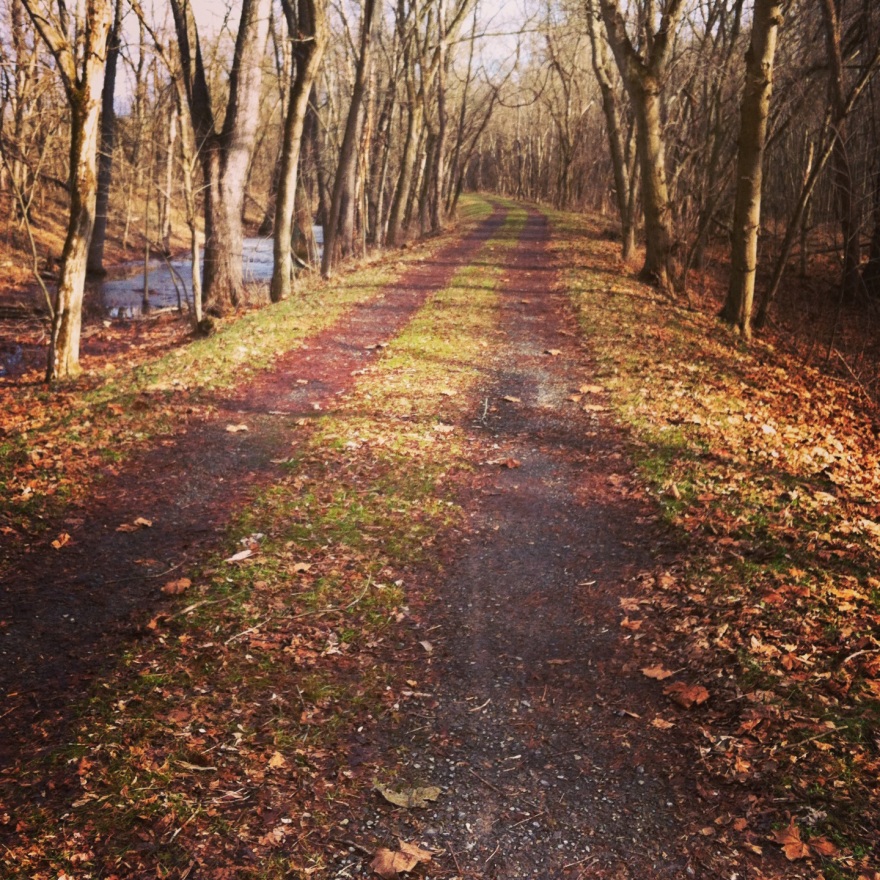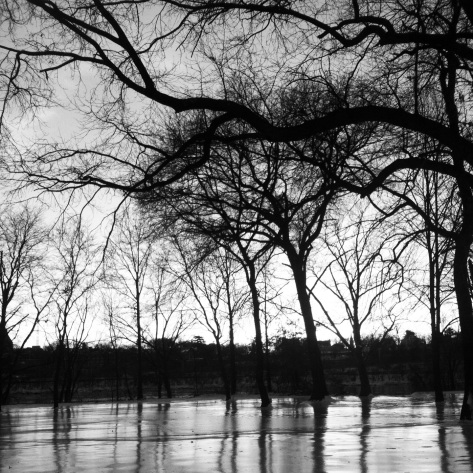The bucket lay opened in the stretch of concrete that passed for a patio in then back of the very suburban apartment. A primary-colors slide-cube-fort occupied most it, leaving the red haired boy hunting for room to crawl on. His mother watched from inside, alternating between the book (library owned) and quick glances to the patio.
The bucket had ended up hastely in the red wagon that shuffled boys and groceries from store to house–a last minute decision, maybe a chance to buy some needed study time. And just as hastely it had been presented as a last minute surprise to the boy. His grey overall shorts hugged his soft, silky baby fat and the heat of late spring was quickly curling his long locks into tight spirals that went from straw to auburn when little beads of sweat gathered at the roots.
The boy smiled at the opened bucket. The huge cylinders of color offered new choices–olive and fuschia and gold and melon. He wrapped a small hand around them and tried to lick them. “No, no!” Mama quickly stopped him. “On the ground!”
Mama showed him the magic of the color spilled on the gray canvas, quickly sketching a frog, with big eye lashes and a heart for lips. The boy would learn later that mama’s frog was the boa constrictor of her life and that, like Saint-Exupery, she had never learned to quickly draw anything else.
For now, the frog was magical and mama stepped back in, letting the boy savor the color all by himself.
The color left the sticks so easily. The boy discovered shades and textures and places to leave their dusty marks. The sticks rolled on the ground under his bare knees and got stuck inside the overalls and in the corners of the small yellow slide. Some of them broke in half, letting the boy double the color greatness of the gift. Soon, some shattered, and dust of mahogany and gold fell in chaotic configurations on and around the boy.
When mama came out again, her boy was covered in streaks of brilliant hues, stripes across the nose and left cheek and small splotches of golden dust in the right side of the face. His grey overalls had hand prints of green and lime and browns and a holiday of rainbows lay around his knees and bare feet. Even his hair was tinted. And through the wide grin, mama could see the buddah, giggling at the offering of color and late spring joy this world sometime has to offer.
 Something twitched in the web of bare white branches.
Something twitched in the web of bare white branches. The subway rolled in. Anna moved into one of the trains, noticing once again the slight stoop of her shoulders. It still bothered her. In the dim, unflattering fluorescent light, she brushed off once again the gnawing of dissatisfaction. It had gotten better in the latter years or she had gotten better at pushing the feeling to the periphery of her consciousness.
The subway rolled in. Anna moved into one of the trains, noticing once again the slight stoop of her shoulders. It still bothered her. In the dim, unflattering fluorescent light, she brushed off once again the gnawing of dissatisfaction. It had gotten better in the latter years or she had gotten better at pushing the feeling to the periphery of her consciousness.